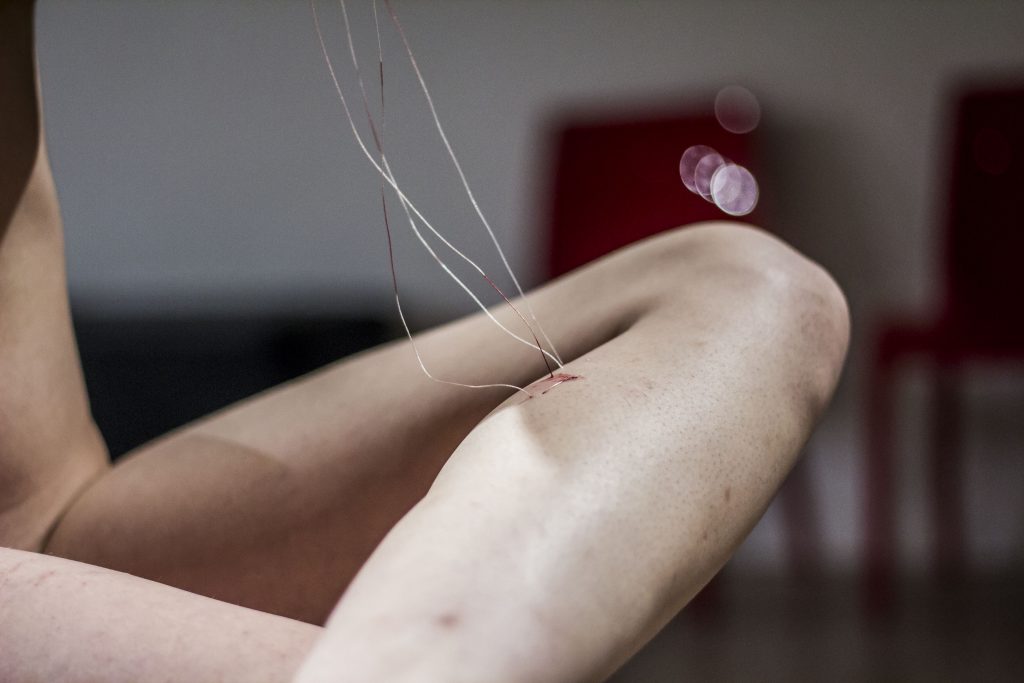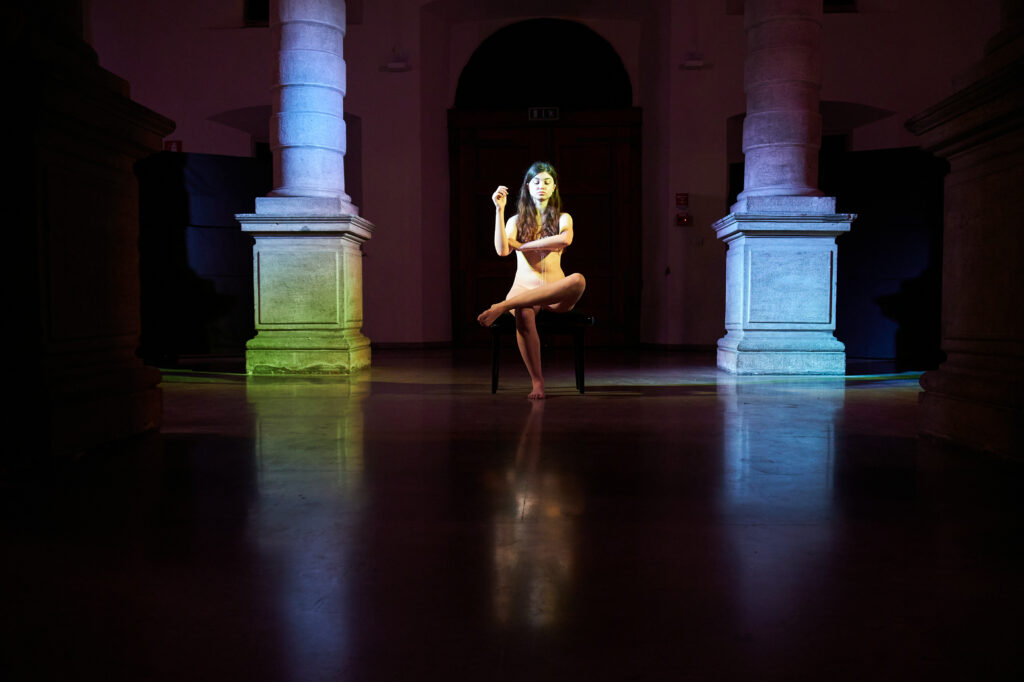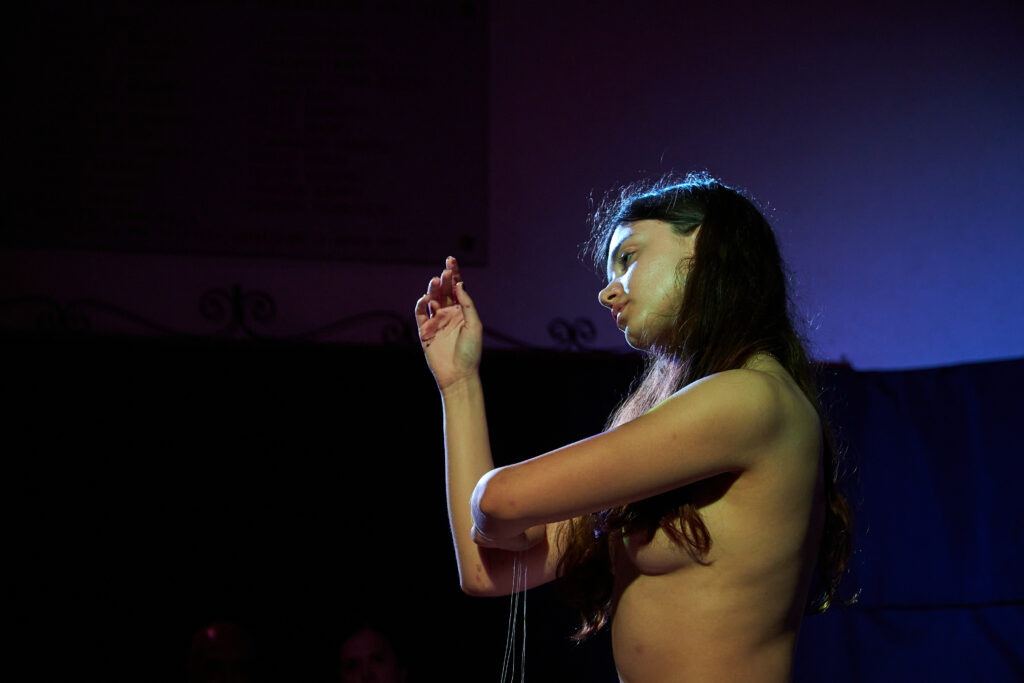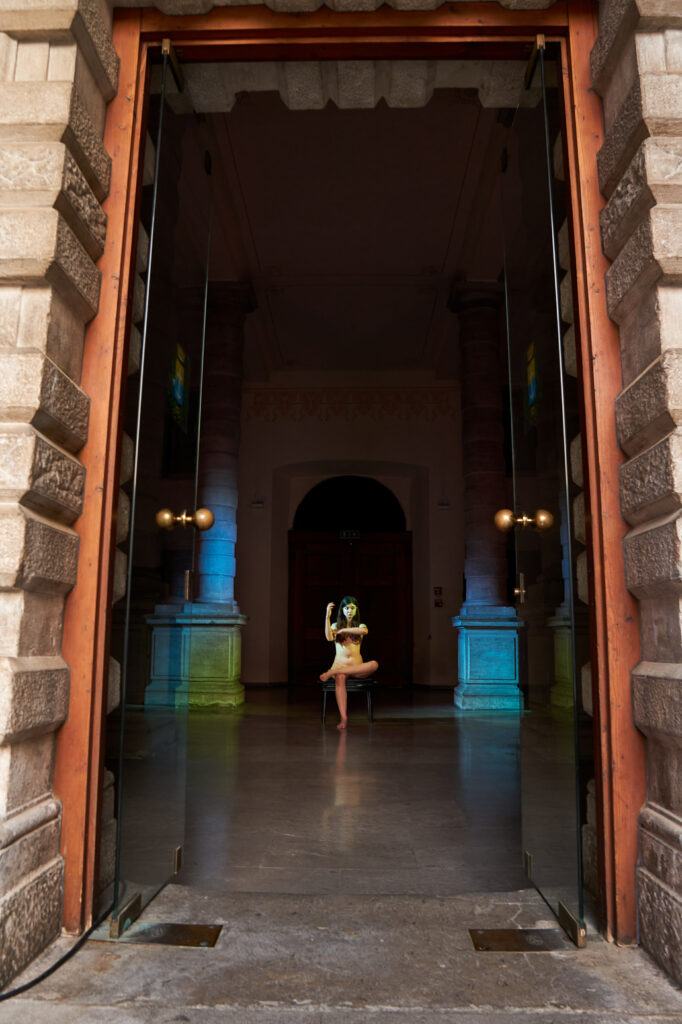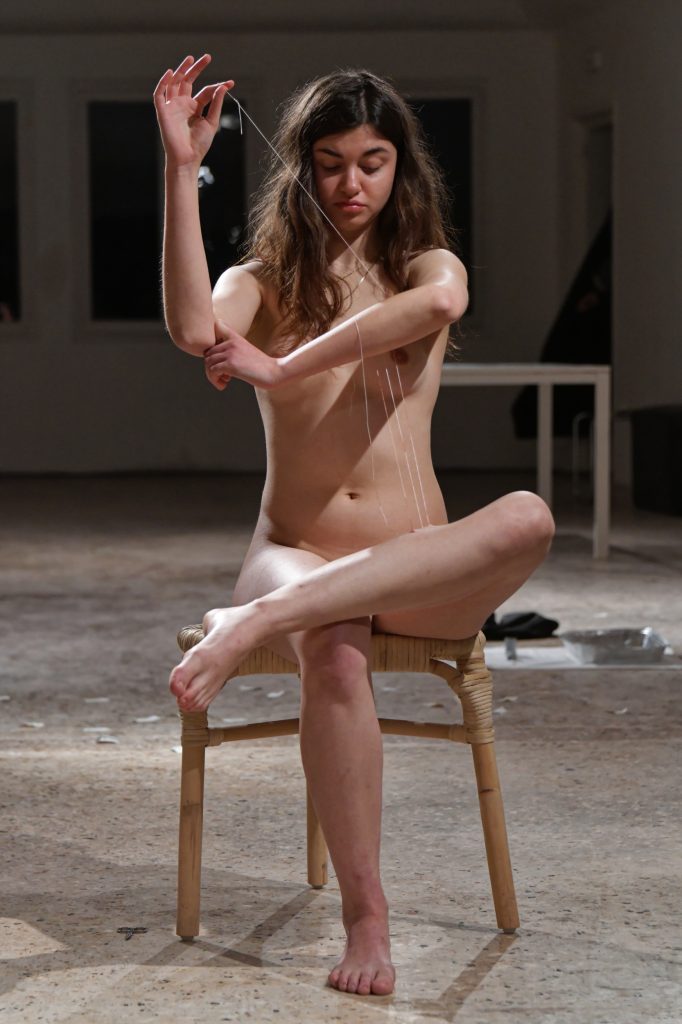
A piece about the paradox of art and its responsibility to the historical moment, and yet, its ability to transcend the present. It uses a personal family story as an example My grandmother was a violin prodigy, but also a Hungarian citizen in Yugoslavia after WW2 (Hungary was a member of the Axis), and because of the new communist regime and its policy towards Hungarians and Germans in the north of Serbia, had to give up her violin studies and worked in cornfields, and that irreparably damaged her fingers. At first, it seems ludicrous: why is a young person (she was my age at that point), an artist, punished for the wrongdoings of a country (and to make the matter even more bizzare, a country she was not living in) ? At second glance, why would an artist want to play Bach and Beethoven in a city where people were being thrown in the frozen Danube river alive, where the streets were bloody after the bloody ice melted?
This piece was first performed in Venice in 2020, as a part of Venice International Performance Art Week. Second and last time performed as a part of B#side the river festival (curated by Chiara Isadora Artico), in duration of three hours, in Gradisca d’Isonzo. That second performance was very important for me, not only because it was performed in a place near the Italy-Slovenia border which comes with its own turbulent history, but because it was performed in front of regular people, even children, and it resonated.
